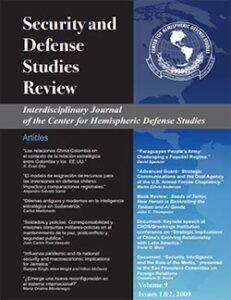Strategic communications is a key means of gaining acceptance of one's ideas, policies or courses of action. As such it plays a critical role in helping the United States to reinforce understanding of its values and culture — including support for its ideas, policies and courses of action — both within its war-fighting establishment and by the rest of the world. This article examines the historical actions of military chaplains to shed light on a critical aspect of their work; their ministries as strategic communications platforms from which they carry out a pastoral role while offering, as valued members of the military inner circle, religious, moral, spiritual and ethical advice to leadership, both at the strategic and tactical levels. It examines the role of the American military chaplaincy as a strategic communications phenomenon that predates the concept itself. A buzzword emanating from the 1990s that gained even greater currency in the September 11, 2001 global "war of ideas" — "strategic communications" might appear to be a new concept. Yet for centuries military chaplains have labored as strategic communicators in an effort to win support within the armed forces for their countries' national policy and doctrine.

